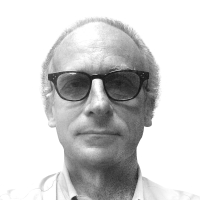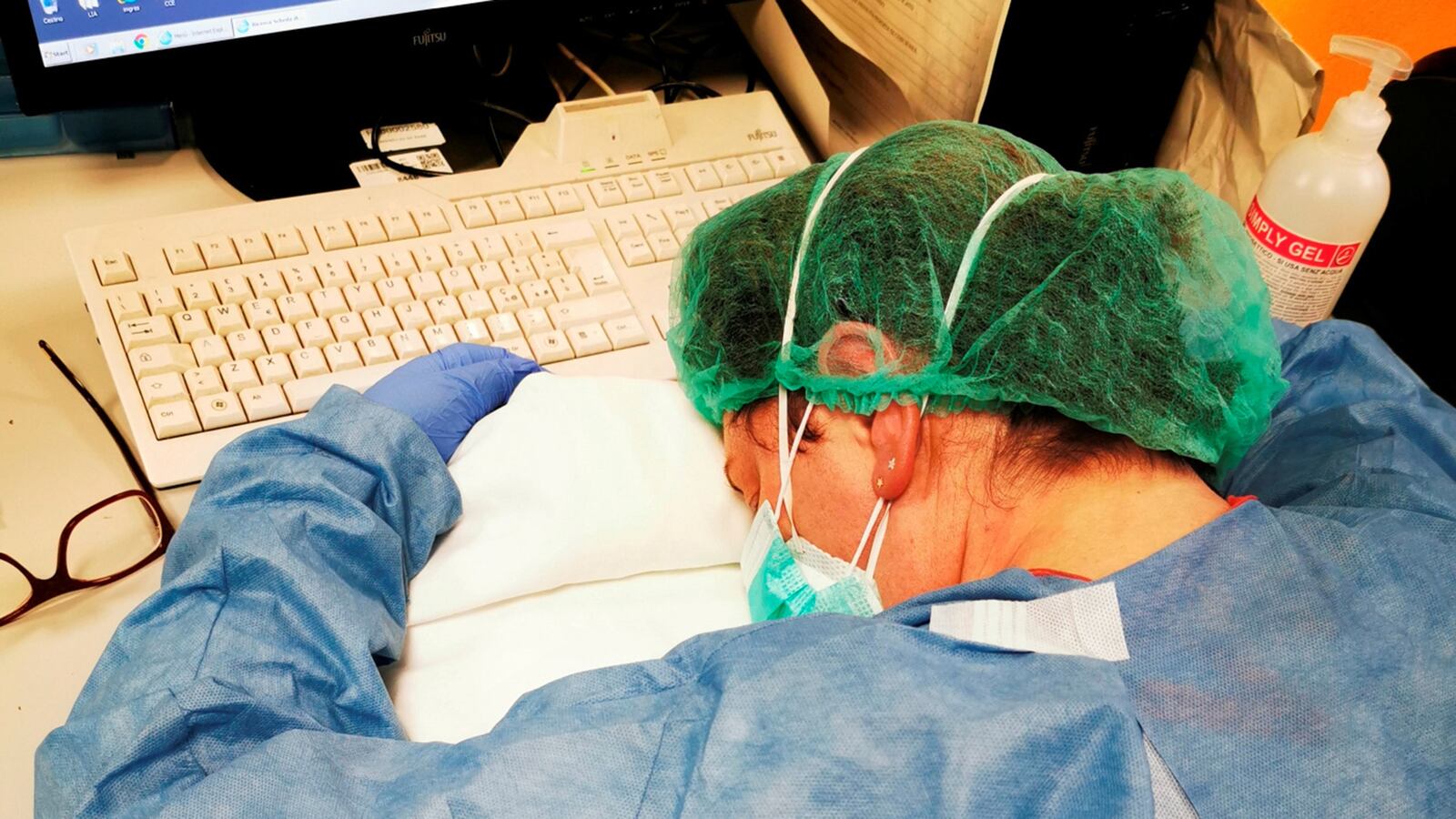Despite the dazzling ineptitude of America’s initial response to the novel 2019 coronavirus pandemic, it is likely that the COVID-19 outbreak will subside in the next two or three—or four or five—months. All outbreaks, even the Black Death, do end eventually, though sometimes only after exhausting the supply of susceptible human beings in their path.
To be sure, there remain unimaginable illness and misery, disruption of society, and near-collapse of the health care system ahead. But movement restrictions will be loosened, and the hallmarks of American life, from sports to dinner out, will slowly start to come back into focus.
Yet in that shining city on a future, disease-ridden hill, we will encounter a new version of another uniquely American problem: burnout.
Doctors and nurses and everyone who help patients will be burnt to a crisp. Fried. Wiped out. Brains gone. Emotions in some distant deep freeze. Adrenalin spent. Too sleepy to fall asleep. Reading any of a number of reports from running-on-empty Italian practitioners shows just how bad it is and will become.
After months of fear, drama, panic (and excitement), health care workers will be asked to return to the chores of daily activities of keeping people healthy. That means writing notes in triplicate—one for the chart, one for your referring doctor, and one the insurance company. Asking you if you took your blood pressure pill. Making sure the new smartphone works everywhere throughout the hospital. And feeling bored and tired.
Which will come at a bad time in American medicine. What many initially thought was simply a millennial self-pity party, burnout in general and in health care is a real and real large problem, whether measured by economic (billions of dollars a year) or humanistic perspectives. For example, a pre-pandemic survey of American physicians found that 78 percent (a.k.a. everyone) had burnout and were therefore potentially endangering both their patients and themselves with short-tempered or exhausted or brain-semi-dead decisions.
There are differences, of course, in the types of burnout at play here. The recent American survey is about chronic frustration and dissatisfaction over many years, whereas the Italian doctors are delivering an urgent, primal scream of fear and fatigue.
Each path to burnout creates similar problems for patients and providers. But the coming wave of post-apocalypse zombie health care providers creates an additional problem. Many may become addicted to life on the high-wire—may need it to feel fulfilled once again, as irrational as that may be. This may cause more restlessness, then more mistakes, and more existential crisis.
Add to this an inevitable consequence for all who have done something brave and generous: feeling heroic but neglected.
Please note—this is some scary shit right now. Health care workers are at risk for acquiring COVID-19 and dying, as happened to some of the first doctors and nurses treating the disease in China. I worry about my friends and colleagues… and myself. All of us have some risk we have decided to take on. Some U.S. doctors and nurses will die. Yet they (we) are showing up for work, leaning in to their societal responsibility and—let’s be immodest here—sort of saving the day.
But in the happy future where the emphasis will on returning to normal, to the glib and ironic, to the shrug, to the HBO series COVID starring Someone Handsome, it is pretty unlikely that anyone will want to hear much about what we went through, at least after the first few weeks of calm and cautious celebration. It will become akin to hearing Uncle Maury go on about life as a soldier in the jungles of Vietnam. Haven’t we heard that story 100 times before? Like the last zillion Thanksgiving dinners?
Members of the military and first-responders knows well the speed with which society becomes disinterested after crisis has passed. By chance, institutions built for other purposes have provided a group therapy opportunity for them; for example, VFW (Veterans of Foreign Wars) halls throughout the country allow survivors to swap stories and recall old friends and cry a little. Ditto, the Veteran’s Administration (VA) hospital system in the U.S., which provides sick and disabled American veterans a place to be with the only people who can possibly understand and appreciate just exactly what they went through—and continue to go through.
This combination of a burnt-out, proud, and neglected-feeling group of health care professionals running the show in 2021 and beyond is a really scary business. To re-center health care after things settle down will require serious, honest, and dedicated professionals working together for the larger good—an approach conspicuously absent in the current debacle.






